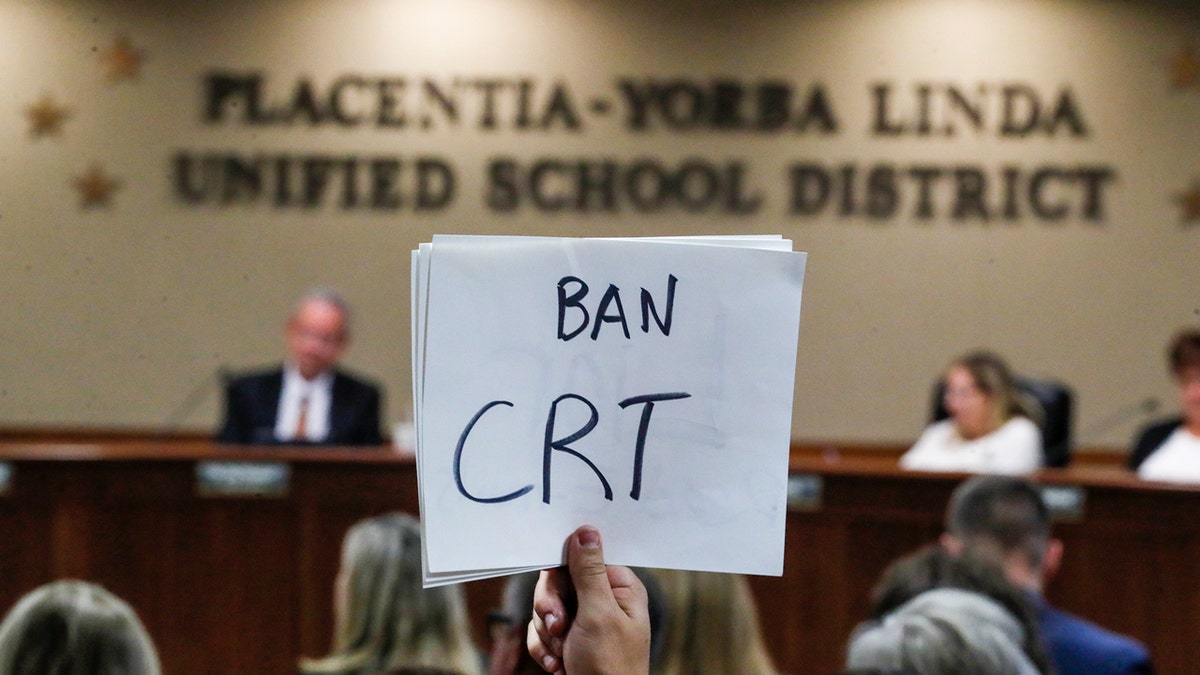Harvard University professor blasts 'fake journalist' Chris Rufo for objecting to Critical Race Theory
Ivy league professors trashed GOP critics of Critical Race Theory and specifically took aim at Christopher Rufo.
A University of Illinois-Chicago assistant professor believes critical race theory [CRT] can be integrated into chemistry lessons.
Terrel R. Morton, an "Identity and Justice in STEM Education" scholar, wrote an article in Nature to highlight the racial disparities in the chemistry and science fields and offer ways to practice CRT in order to address the underrepresentation.
Critical race theory is a controversial philosophy and progressive idea that proponents say can increase racial equity and which critics describe as Marxist, anti-American, and neo-racist. Morton defines critical race theory as a compilation of provocative writings that challenges us to consider the relationship between race, the legal system, and society at large, which is the definition from the book "Critical Race Theory: The Key Writings that Formed the Movement."
After listing several incidents of police brutality against unarmed African-Americans, Morton mentioned that the push for racial justice calls for a need to turn to critical race theory in order to address anti-Black racism.

OCR is requiring that all of the students in the professor's class be notified of the college's investigation concluding.
"In this Comment, I provide a brief overview of CRT and discuss how it can be used as a lens to critically examine the culture and practices of postsecondary chemistry education (learning, research and engagement) in the USA and beyond, as well as identify tangible strategies for redressing and mitigating structural racism in chemistry," he wrote.
Morton argued that the data showing an underrepresentation of Blacks in the chemistry field shows that it yields in favor of "white, cisgender, middle-to-high socioeconomic status, heterosexual, non-disabled men."
He argued that critical race theory can be practiced through "structural change" which involves strategies to foster an environment where the "liberation of Black people" is a common goal among a group of people in the workplace.

Critical race theory (CRT) has emerged as polarizing topic in recent years. (Robert Gauthier)
Another way he listed that CRT can be practiced is through "mitigating racism and gendered racism."
"Inequities in the field of chemistry can also be mitigated as the field collectively validates the systemic presence and continuous influence of racism and gendered racism on scientific inquiry and education," Morton wrote. "Each person should evaluate their position and actions towards social justice — with respect to their identity, privilege, exposure, awareness and commitment."
In addition, Morton criticized meritocracy, calling it a myth. He argued that credentials and references such as letters of recommendation create a barrier for students because of "financial, social and cultural capital" playing a role in determining one's success in chemistry.
Even the promotion of "individualism" is problematic, according to Morton. He argues that "the bootstrap mentality communicated through U.S. laws and social norms is a false reality given racism and its de facto outcomes."

Terrell R. Morton, a University of Illinois-Chicago professor, wrote "Critical race theory and its relevance for chemistry" to highlight the "numerical underrepresentation of Black individuals in postsecondary chemistry" and science in general." (iStock)
"Obtaining a letter is about more than just a person’s merit; it is also a reflection of a student–professor relationship," he wrote. "Students must therefore be aware that they will need such a letter and develop an appropriate rapport with the professor, which requires a certain form of social and cultural capital not readily available to all students."
CLICK HERE TO GET THE FOX NEWS APP
Morton did not immediately respond to Fox News Digital’s request for comment.
For more Culture, Media, Education, Opinion, and channel coverage, visit foxnews.com/media









































